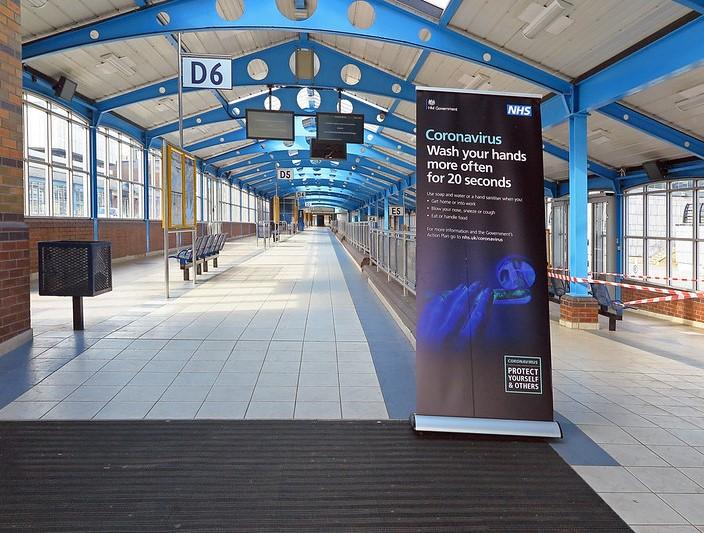In European Union countries and the United Kingdom, COVID-19 cases have declined overall, though the number of outbreaks at nursing homes has increased, and in other parts of the world, activity is surging in the Brazilian city of Manaus, with fears that it is the next major hot spot.
The global total rose to 2,682,225 cases in 185 countries, including 187,330 deaths, according to the Johns Hopkins online dashboard.
ECDC urges slow steps in relaxing distancing
In its latest risk assessment today, the European Centre for Disease Prevention and Control (ECDC) said stay-at-home policies and other interventions are responsible for the drop in cases and that 20 of the 31 countries it monitors appear to be past the peak of their initial waves. Eight countries reported no change, and three reported increasing trends: Ireland, Sweden, and the United Kingdom.
Deaths are still rising in 27 countries, and considerable excess morality has been reported in several countries, both in younger and older adults.
Regarding the impact on nursing homes, France, for example, has reported COVID-19 outbreaks at 5,340 facilities since Mar 1. And in Belgium, about half of all deaths from the virus involve nursing homes or similar settings. The ECDC said the pattern underscores the extreme vulnerability of the elderly in these settings.
Acknowledging that the control measures are disruptive, the ECDC said lifting them too quickly could trigger a resurgence of sustained community transmission. Its risk assessment references its roadmap for lifting containment measures that covers public health goals, robust surveillance, expanded testing, contact tracing, enough healthcare capacity, response assessment, and a strong risk communication plan.
In a related development, French officials today fine-tuned the easing of its lockdown, which ends on May 11, Reuters reported. They said retailers should reopen with some protocols in place to protect workers and customers, such as limiting the number of customers who shop at one time. Restaurants, bars, and cafes, however, will likely remain closed, and restrictions might remain in place for some hart-hit areas.
Manaus emerges as Brazil's hot spot
COVID-19 activity has been rising steeply in South America and Central America, with an outbreak in Ecuador overwhelming health systems and morgues in Guayaquil. Now a similar situation is unfolding in Manaus, Brazil, a city of 2.2 million located in Amazonas state, the Associated Press reported.
The city's healthcare system was stretched even before the COVID-19 outbreak and is overrun by COVID-19 patients. Like other hot spots, there aren't enough ventilators for patients or personal protective equipment for health workers. Social media posts showed body bags on gurneys in hospital hallways and in patient rooms. Gravediggers have been burying about 60 people a day, triple the usual number.
Amazonas state has recorded 2,000 cases, mostly in Manaus, which has Brazil's highest infection rate. Brazil's government has sent ventilators and medical staff and said it would add intensive care unit beds.
Meanwhile, in Guayaquil, the city's mayor Cynthia Viteri said authorities are regaining control, The Guardian reported yesterday. Soldiers and police have blocked off neighborhood epicenters and are enforcing strict lockdowns, and city task force members are going house to house looking for new cases.
She said independently gathered numbers suggest the outbreak death tol in the city of nearly 3 million is more than 8,000, well above Ecuador's officials number of 507.
Pressure builds for China probe
Pressure is building for an investigation into the origins and spread of China's COVID-19 outbreak, with Australian Prime Minister Scott Morrison saying today that all nations that are World Health Organization (WHO) members should support an independent review, Reuters reported. He also said the inquiry should cover the WHO's response.
He said Australia will push for the inquiry during the WHO assembly on May 17. However, according to the International Health Regulations, the WHO does not have the authority to conduct investigations. And following major outbreaks, the WHO and independent reviewers routinely review the group's response performance.
Chinese officials today said the inquiry calls are politically motivated and part of US propaganda against China.
In other developments related to China, a team reported promising animal trial findings for Sinovac's inactivated COVID-19 vaccine candidate. They published their findings on the preprint server bioRxiv. Immunization with two different doses provided partial or complete protection of macaques against virus challenge without any evidence of antibody-dependent enhancement, which has been a concern. Monitoring of clinical signs showed no safety signals, supporting the development of the vaccine for humans.
China's National Health Commission today reported 10 more cases, 6 imported and 4 local. Of the local cases, 3 were in Heilongjiang province and 1 in Guangdong province.
WHO warns of cyberattacks, weighs in on ibuprofen
The WHO said today that it is experiencing a fivefold spike in cyberattacks targeting its staff and email scams aimed at the public.
It said 450 active WHO email addresses and passwords were leaked, along with those of thousands of others who are working on the COVID-19 response. The leaked data weren't recent and didn't put WHO systems at risk, but they did affect an older extranet system used by current and retired staff, as well as some WHO partners. The agency said it is migrating the affected system to a more secure authentication system.
The group also warned that scammers with fake WHO emails are trying to solicit money to a fictitious fund and not the legitimate COVID-19 Solidarity Response Fund.
The WHO also recently published a scientific brief on ibuprofen and COVID-19, based on a literature review. It said there is no evidence of adverse outcomes as a result of people with COVID-19 taking the medication.






















